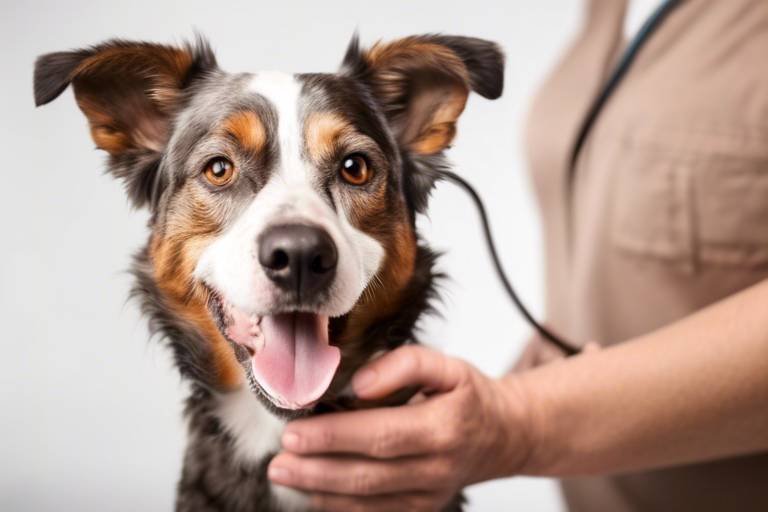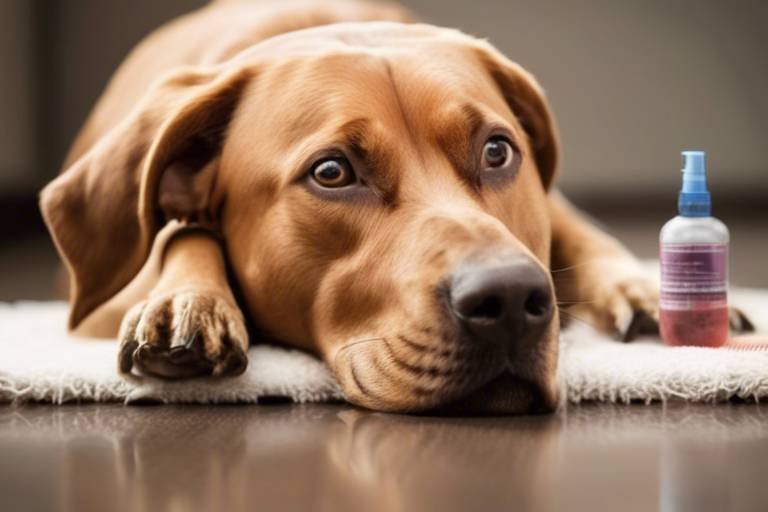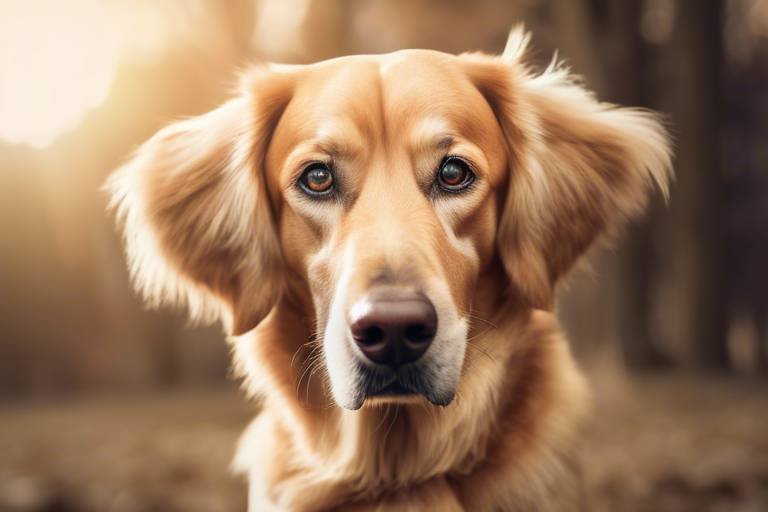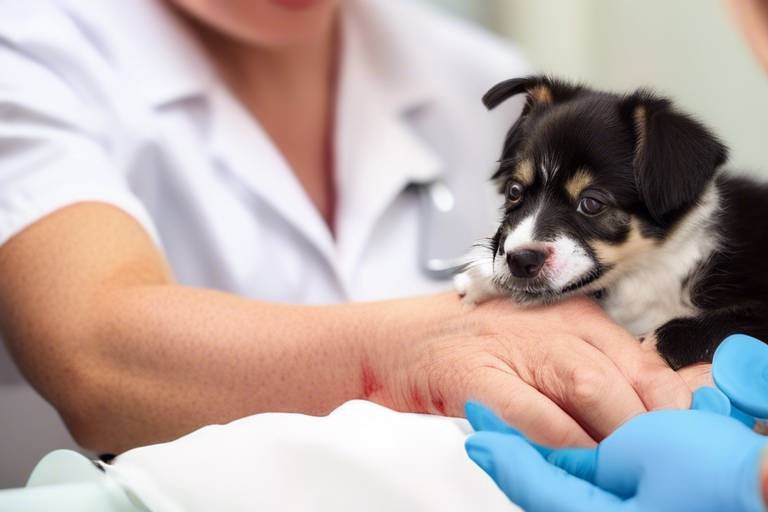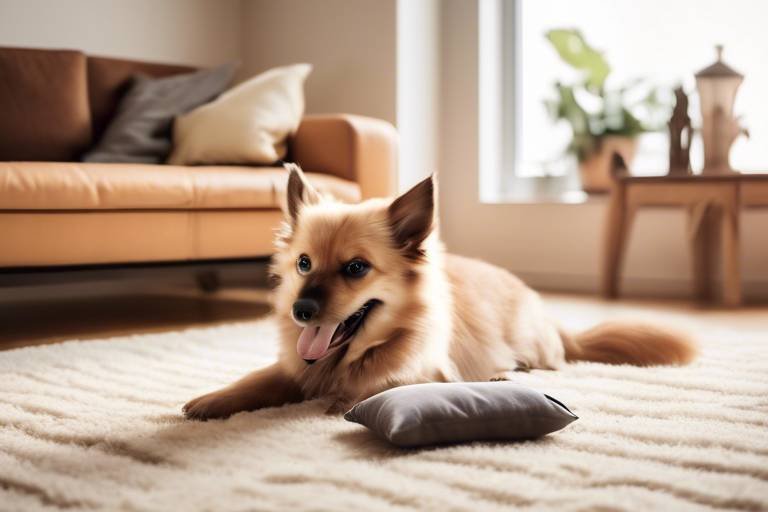The Importance of Socializing Puppies for Future Health
When you bring a puppy into your home, you're not just welcoming a new furry friend; you're also embarking on a journey that will shape their personality, behavior, and overall health for years to come. Socialization is a crucial aspect of this journey, acting as the foundation upon which your puppy's future interactions with the world will be built. Imagine your pup as a sponge, soaking up experiences, sounds, and sights during their formative weeks. The experiences they encounter during this time can either set them up for success or lead to a lifetime of challenges.
Why is socialization so vital, you ask? Well, just like humans, puppies learn how to navigate their surroundings through interactions. By exposing them to a variety of environments, people, and other animals, you're equipping them with the tools they need to become well-adjusted adults. Think of it as giving them a toolkit for life—each experience adds a new tool that will help them tackle future challenges with confidence.
Moreover, the benefits of early socialization extend far beyond just avoiding behavioral issues. A well-socialized puppy is more likely to grow into a dog that can handle stress, adapt to new situations, and maintain a calm demeanor in the face of unpredictability. This not only enhances their quality of life but also strengthens the bond between you and your pet, as they learn to trust you in unfamiliar scenarios.
So, how can you ensure your puppy receives the best socialization possible? It starts with understanding the critical socialization periods in their development. Puppies are most receptive to new experiences between 3 and 14 weeks of age. During this window, they are like little sponges, soaking up everything around them. If you miss this opportunity, you may find it more challenging to introduce new experiences later on. Think of it like planting a seed; the right conditions during this early growth phase will determine how strong that plant becomes.
As you embark on this socialization journey, remember that patience and consistency are key. Gradually introduce your puppy to different environments, sounds, and people. Whether it's a bustling park, a quiet café, or a gathering of friends, each outing is a chance for your puppy to learn and grow. And don't forget to celebrate their successes—each wag of the tail and curious sniff is a step toward becoming a well-rounded adult dog!
In conclusion, the importance of socializing puppies cannot be overstated. It's an investment in their future health and happiness, paving the way for a lifetime of positive experiences. So, get out there, explore the world with your puppy, and watch as they blossom into the confident, loving companion you've always dreamed of!
- What is the best age to start socializing my puppy?
Puppies should begin socialization as early as 3 weeks old, with the most critical period being between 3 and 14 weeks. - How can I tell if my puppy is properly socialized?
A well-socialized puppy will show curiosity, playfulness, and a lack of fear towards new experiences and environments. - What are some effective socialization techniques?
Gradual exposure to different people, places, and sounds, along with positive reinforcement, can greatly assist in socializing your puppy. - Can socialization help with fear and anxiety?
Yes! Proper socialization can significantly reduce fear and anxiety in dogs, leading to better behavior and a happier life.
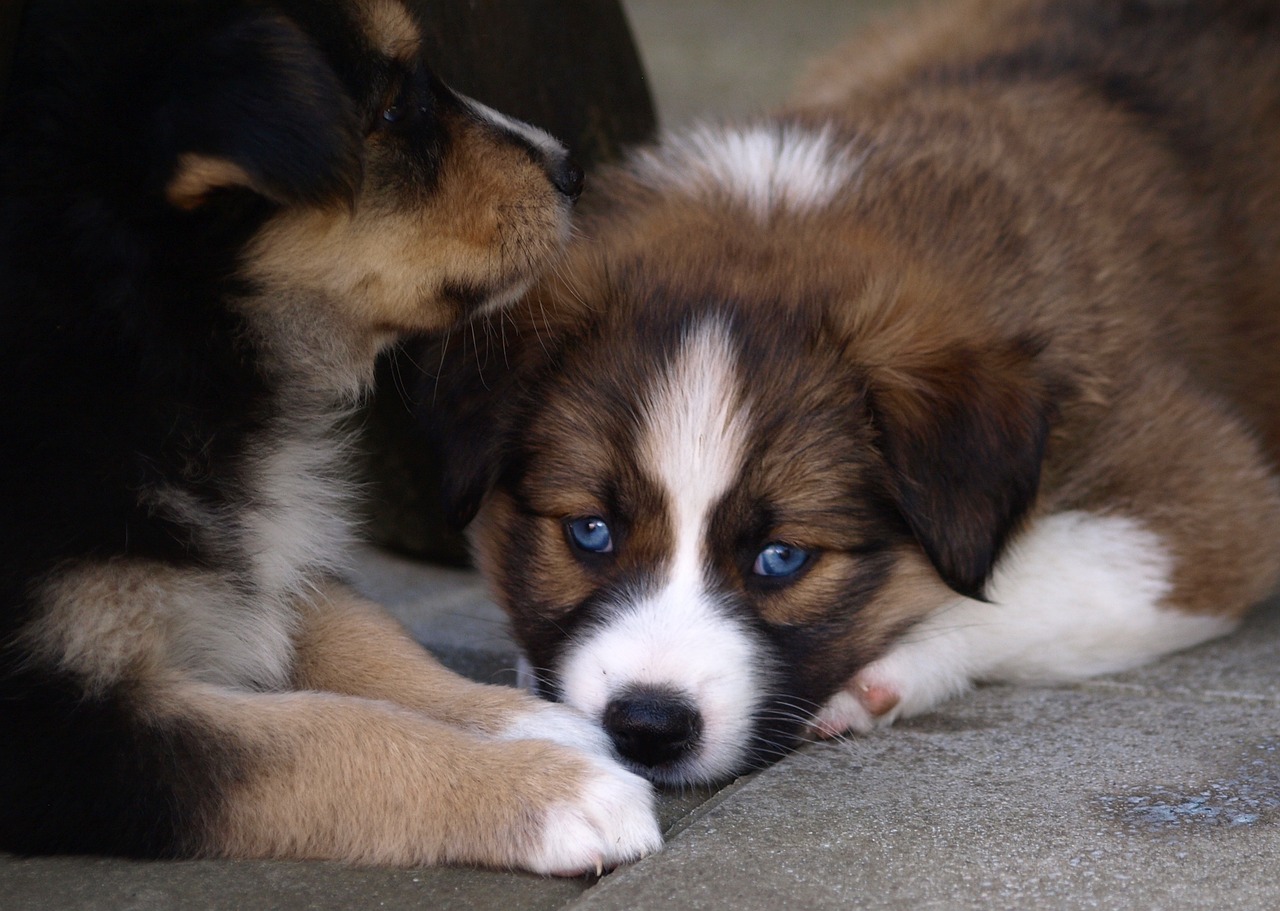
Understanding Puppy Socialization
Puppy socialization is a crucial aspect of a young dog's development, encompassing the process of exposing them to a variety of environments, people, and experiences. Imagine your puppy as a blank canvas; every interaction they have during their early weeks adds vibrant colors to their personality. This exposure is not merely about meeting new faces or sniffing different scents; it's about teaching them how to navigate the world around them. The goal is to help them develop essential life skills that will serve them well throughout their lives.
During the critical socialization window, which typically spans from 3 to 14 weeks of age, a puppy's brain is like a sponge, soaking up all the information it can. This period is when they are most receptive to new experiences. By introducing them to various stimuli—like the sounds of bustling city life, the sight of other animals, or the feel of different surfaces under their paws—you are essentially laying the groundwork for their future behavior. A well-socialized puppy is more likely to grow into a confident, well-adjusted adult dog, capable of handling the complexities of everyday life.
The importance of socialization cannot be overstated. Without these early experiences, puppies may develop fears and anxieties that can manifest in undesirable behaviors later on. For instance, a puppy that has never been exposed to children may become fearful or aggressive when they encounter them for the first time. Conversely, a well-socialized puppy will approach new situations with curiosity rather than fear, leading to a more harmonious coexistence with humans and other animals alike.
Here are some key components of effective puppy socialization:
- Exposure to Different People: Ensure your puppy meets individuals of various ages, genders, and ethnic backgrounds. This diversity helps them understand that not all humans are the same.
- Interactions with Other Animals: Arrange playdates with vaccinated dogs and puppies to teach your pup proper play behavior and social cues.
- Varied Environments: Take your puppy to different environments—parks, busy streets, and quiet neighborhoods—to familiarize them with various sights and sounds.
- Handling and Grooming: Get your puppy used to being touched and handled, which is essential for vet visits and grooming sessions later in life.
In conclusion, understanding puppy socialization is about recognizing its profound impact on your dog's future. By investing time and effort into socializing your puppy during this critical period, you're not just enhancing their immediate happiness; you're also setting them up for a lifetime of positive interactions and experiences. Remember, a well-socialized puppy is not just a joy to have around; they are also a healthier, happier companion for years to come.
- What is the best age to start socializing my puppy? The optimal age to begin socializing your puppy is between 3 to 14 weeks, as this is when they are most receptive to new experiences.
- How can I tell if my puppy is well-socialized? A well-socialized puppy will display confidence in new situations, interact positively with other dogs and people, and show curiosity rather than fear.
- What if my puppy shows signs of fear during socialization? If your puppy exhibits fear, it's essential to take a step back, allow them to acclimate at their own pace, and gradually introduce them to new experiences in a controlled manner.
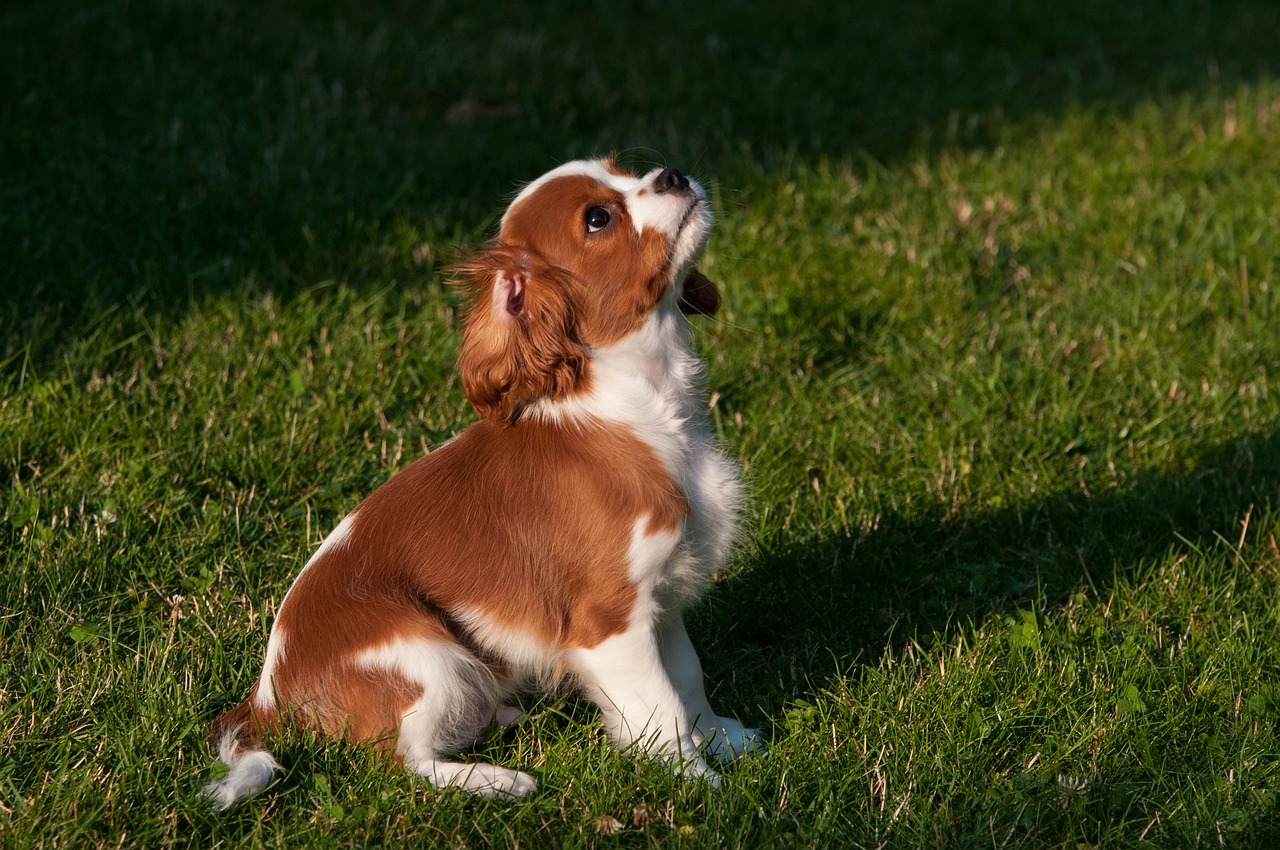
Benefits of Early Socialization
When it comes to raising a happy and healthy dog, early socialization is like laying a strong foundation for a house. Just as a sturdy base supports the entire structure, socializing your puppy sets the stage for a well-adjusted adult dog. The benefits of this crucial phase in your pup's life are numerous and can significantly enhance their overall quality of life. By exposing your puppy to a variety of environments, people, and experiences, you're not just filling their day with fun; you're equipping them with essential life skills that will serve them well into adulthood.
One of the most significant advantages of early socialization is its ability to reduce the likelihood of behavioral issues down the line. Puppies that are socialized properly are less likely to develop fears and anxieties that can manifest as aggression or other problematic behaviors. Imagine a puppy that has never seen a bicycle before; if they encounter one unexpectedly, they might react with fear, barking, or even lunging. However, a well-socialized puppy, who has been exposed to bicycles in a controlled environment, is more likely to remain calm and curious, fostering a positive interaction instead.
Additionally, early socialization promotes positive interactions with other animals and humans. When your puppy has the opportunity to meet different people and pets, they learn how to communicate and engage appropriately. This is essential for building trust and reducing the risk of aggression. A well-socialized dog is not only more pleasant to be around but also easier to manage in social situations, whether it's at the dog park or during a family gathering.
Moreover, the benefits of early socialization extend beyond just behavior. Puppies that are well-socialized tend to be more adaptable and resilient. They can handle changes in their environment with grace and ease, whether it’s a new home, a different family member, or even a sudden change in routine. This adaptability can lead to a happier, healthier life, as dogs that are comfortable in various situations are less likely to experience stress and anxiety.
To sum it up, early socialization is not merely a fun activity for your puppy; it's a vital investment in their future. The skills they acquire during this formative period can lead to:
- Reduced fear and anxiety: A well-socialized puppy is less prone to panic in new situations.
- Positive relationships: Socialized dogs tend to form healthy bonds with both humans and other animals.
- Long-term health benefits: A confident dog is generally healthier, both mentally and physically.
In essence, the benefits of early socialization are profound and far-reaching. By taking the time to expose your puppy to a variety of experiences, you are not just shaping their behavior; you are enhancing their entire quality of life. So, as a responsible pet owner, it’s crucial to prioritize this important aspect of your puppy’s development. Remember, a well-socialized dog is a happy dog!
Q: What age should I start socializing my puppy?
A: The ideal time to start socializing your puppy is between 3 and 14 weeks of age, as this is when they are most receptive to new experiences.
Q: How can I socialize my puppy safely?
A: Gradually introduce your puppy to new experiences, people, and environments. Ensure that each experience is positive and controlled to prevent overwhelming them.
Q: What if my puppy shows signs of fear during socialization?
A: If your puppy shows fear, it's important to take a step back. Use positive reinforcement to encourage calm behavior, and avoid forcing them into situations that make them uncomfortable.
Q: Can I over-socialize my puppy?
A: Yes, over-socialization can lead to stress. It's crucial to balance exposure with downtime. Pay attention to your puppy's cues and adjust accordingly.
Reducing Fear and Anxiety
When it comes to our furry companions, fear and anxiety can be major hurdles that impact their behavior and overall happiness. Just like humans, puppies experience fear in new situations, and if not addressed early on, this fear can manifest into serious behavioral issues. Imagine a puppy encountering a loud noise for the first time; without proper socialization, that little pup might react by hiding or barking excessively. That's where the magic of early socialization comes into play!
Proper socialization is like giving your puppy a toolbox filled with essential tools to navigate the world confidently. It helps them learn to cope with new experiences, which is crucial for their emotional stability. Think of it as teaching them to ride a bike; the more they practice, the more comfortable they become, and soon enough, they’re zooming around without a care in the world! This gradual exposure to various stimuli—like different sounds, sights, and smells—can significantly minimize their fear and anxiety.
One effective technique for minimizing fear is the concept of gradual exposure. This means introducing your puppy to new experiences slowly and in a controlled manner. For example, if you want your puppy to get used to the sound of thunder, you might start by playing a recording of thunder at a low volume while providing treats and praise. Gradually increase the volume over time, allowing your puppy to associate the sound with positive experiences. This method helps build their confidence and ensures they remain calm and composed in unfamiliar situations throughout their lives.
It's also important to be vigilant and identify signs of fear early on. Some common indicators include:
- Cowering or hiding
- Excessive barking or whining
- Tail tucked between the legs
- Avoidance of eye contact
By recognizing these signs, you can address any issues promptly and effectively. Ignoring these behaviors can lead to escalation, causing your puppy to develop a more profound fear that could result in aggression or avoidance. Remember, your goal is to create a safe and nurturing environment where your puppy feels secure and loved.
Ultimately, reducing fear and anxiety through proper socialization is not just about creating a well-behaved dog; it’s about fostering a happy and healthy life for your furry friend. The more positive experiences you provide during their critical early months, the more resilient and adaptable they will be as adults. So, let’s help our puppies embrace the world with open paws!
Q: What is the best age to start socializing my puppy?
A: The optimal age for socialization is between 3 and 14 weeks. This is when puppies are most receptive to new experiences.
Q: How can I tell if my puppy is scared?
A: Look for signs such as cowering, excessive barking, or hiding. These behaviors indicate that your puppy is feeling anxious.
Q: Can I socialize my puppy after 14 weeks?
A: Yes, while the critical period is between 3 and 14 weeks, socialization can still occur after this age. Just be patient and use positive reinforcement.
Q: What if my puppy reacts aggressively to new experiences?
A: It’s essential to consult a professional dog trainer or behaviorist to help address these issues safely and effectively.
Techniques for Minimizing Fear
When it comes to raising a puppy, one of the most critical aspects is ensuring that they grow into a confident and well-adjusted adult dog. Fear can be a significant hurdle in this journey, but the good news is that there are effective techniques to help minimize it. Think of socialization as a confidence-building workshop for your pup. Just like humans, puppies need to learn how to handle new experiences without feeling overwhelmed. Here are some techniques that can help:
- Gradual Exposure: Start by introducing your puppy to new environments, sounds, and people slowly. For instance, if your puppy is scared of loud noises, try to expose them to those sounds at a low volume while providing treats and praise. This method helps them associate the noise with positive experiences.
- Positive Reinforcement: Use treats, toys, and affection to reward your puppy for calm behavior in unfamiliar situations. This creates a positive association with the new experience. For example, if your puppy meets a new dog without barking or hiding, shower them with praise and a tasty treat.
- Controlled Socialization: Organize playdates with well-behaved dogs or take your puppy to puppy classes. These controlled environments allow your puppy to interact with others while minimizing the risk of overwhelming them.
It's essential to remember that every puppy is unique, and their reactions to new experiences can vary widely. Some may take to new situations like a duck to water, while others might need a bit more time. The key is patience and understanding. By creating a safe space for your puppy to explore and learn, you are setting the foundation for a lifetime of confidence.
Another effective technique is to establish a routine that includes various experiences. Puppies thrive on consistency, and a predictable schedule can help them feel secure. Incorporate short trips to different places, like parks or pet-friendly stores, into your weekly routine. This not only exposes them to various stimuli but also helps them learn that new experiences are a normal part of life.
Finally, it’s crucial to recognize the signs of fear early on. If your puppy shows signs of distress, such as cowering, whining, or excessive barking, it’s important to address these behaviors immediately. Ignoring them can lead to more significant issues down the line. Instead, use the techniques mentioned above to help them cope and gradually build their confidence.
In conclusion, minimizing fear in puppies is all about creating a positive environment for them to explore and learn. By employing techniques like gradual exposure, positive reinforcement, and controlled socialization, you can help your furry friend grow into a happy, confident dog. Remember, the goal is not just to eliminate fear but to equip your puppy with the tools they need to navigate the world with ease.
1. How long should I socialize my puppy?
It's ideal to socialize your puppy for at least 15-30 minutes per day, incorporating various experiences and environments. Consistency is key!
2. What if my puppy is scared of other dogs?
Start with controlled interactions, such as observing other dogs from a distance, and gradually decrease the distance as your puppy becomes more comfortable.
3. Can I socialize my puppy too much?
While socialization is essential, too much exposure to overwhelming situations can be counterproductive. Always monitor your puppy’s reactions and take breaks when needed.
4. Is it too late to socialize my puppy if they are older than 14 weeks?
It's never too late to socialize your dog! While the critical period is between 3 and 14 weeks, older puppies can still benefit from positive experiences and socialization.
Identifying Signs of Fear
Recognizing the signs of fear in puppies is crucial for any responsible pet owner. Just like us, dogs can feel anxious or scared, and their reactions can vary widely. Imagine walking into a crowded room filled with strangers; some people might feel at ease while others might want to hide. Similarly, puppies experience a range of emotions, and it’s our job to help them navigate these feelings.
Common signs of fear in puppies can manifest in both subtle and overt ways. For instance, a puppy might cower or try to make themselves small, almost like they’re trying to disappear. Other noticeable signs include:
- Excessive Barking: If your puppy suddenly starts barking excessively, it could be a sign of fear or anxiety about a particular situation or stimulus.
- Tucked Tail: A tail tucked between the legs is a classic sign that a puppy is feeling scared or uncertain.
- Shaking or Trembling: If your puppy is shaking, it might not just be a chill in the air; fear can cause physical reactions like trembling.
- Avoidance Behavior: Puppies that are fearful may try to avoid certain people, places, or situations, indicating their discomfort.
Additionally, some puppies may exhibit more subtle signs of fear, such as yawning, licking their lips, or turning their heads away. These behaviors can be mistaken for normal puppy antics, but they often indicate that the puppy is feeling stressed or overwhelmed. It’s essential to pay attention to these cues and respond appropriately.
Understanding these signs is not just about recognizing fear; it’s about building a trusting relationship with your puppy. By being attuned to their emotional state, you can create a safe environment for them to explore and grow. If you notice your puppy displaying signs of fear, it’s important to address the situation calmly and positively. Gradual exposure to the source of their fear, combined with positive reinforcement, can help alleviate their anxiety over time.
In conclusion, identifying signs of fear in your puppy is the first step towards helping them become a confident and well-adjusted adult dog. Remember, the goal is to foster a supportive environment where your furry friend can thrive. After all, a happy puppy leads to a happy home!
Q1: How can I help my fearful puppy?
A1: Gradual exposure to the source of fear, combined with positive reinforcement, can help your puppy build confidence. Always ensure that your puppy feels safe and secure.
Q2: Is it normal for puppies to be fearful?
A2: Yes, it’s quite common for puppies to experience fear, especially during their critical socialization periods. It’s important to address these feelings early on.
Q3: What should I do if my puppy shows signs of aggression due to fear?
A3: If you notice aggression, it’s crucial to consult a professional trainer or behaviorist who can provide guidance tailored to your puppy’s specific needs.
Building Positive Relationships
When it comes to our furry companions, the ability to form positive relationships is paramount. Think of your puppy as a blank canvas; every interaction shapes their perception of the world. By engaging in socialization, you're not just exposing them to different environments or people, but actively teaching them how to communicate and interact with others. Imagine a puppy meeting a new friend for the first time—this moment can either be a joyful romp in the grass or a fearful retreat behind your legs, depending on how well they’ve been socialized.
One of the key benefits of socialization is the development of trust between your puppy and both humans and other animals. This trust is like a bridge, allowing your puppy to feel secure in various situations. When they encounter a new dog at the park or a child running by, a well-socialized puppy is more likely to approach with curiosity rather than fear. This can significantly reduce the risk of aggression or anxiety-driven reactions, making outings more enjoyable for both of you.
Moreover, socialization helps puppies learn essential communication skills. Just like humans, dogs have their own ways of expressing feelings—through body language, barks, and even play behavior. For instance, a puppy that has been well-socialized will understand when another dog is signaling play versus when they need space. This understanding not only prevents conflicts but also enhances their ability to form lasting friendships with other dogs.
However, building these positive relationships doesn't happen overnight. It requires patience, consistency, and a little bit of strategy. Here are a few techniques to consider:
- Gradual Introductions: Start with controlled environments, introducing your puppy to one new person or animal at a time.
- Positive Reinforcement: Use treats and praise to reward your puppy for calm behavior during new experiences.
- Playdates: Organize playdates with other vaccinated puppies to encourage healthy interactions.
In essence, socializing your puppy is about creating a rich tapestry of experiences that will enable them to thrive as confident, well-adjusted adult dogs. The more varied their experiences, the more adaptable they become, allowing them to navigate the complexities of life with ease. So, take the time to invest in your puppy's socialization—it's one of the best gifts you can give them for a happy, healthy future.
Q: At what age should I start socializing my puppy?
A: It's best to start socializing your puppy as early as 3 weeks of age, but the critical window is between 3 and 14 weeks. This is when they are most receptive to new experiences.
Q: How can I tell if my puppy is scared during socialization?
A: Signs of fear can include cowering, excessive barking, hiding, or showing signs of stress like panting or drooling. It's important to recognize these signs and adjust your approach accordingly.
Q: What should I do if my puppy reacts aggressively during socialization?
A: If your puppy shows aggressive behavior, it's crucial to remove them from the situation immediately. Consult a professional trainer who can provide guidance tailored to your puppy's needs.
Q: Can I socialize my puppy too much?
A: While socialization is essential, it's important to monitor your puppy's stress levels. Too much exposure can overwhelm them, so always aim for a balance.
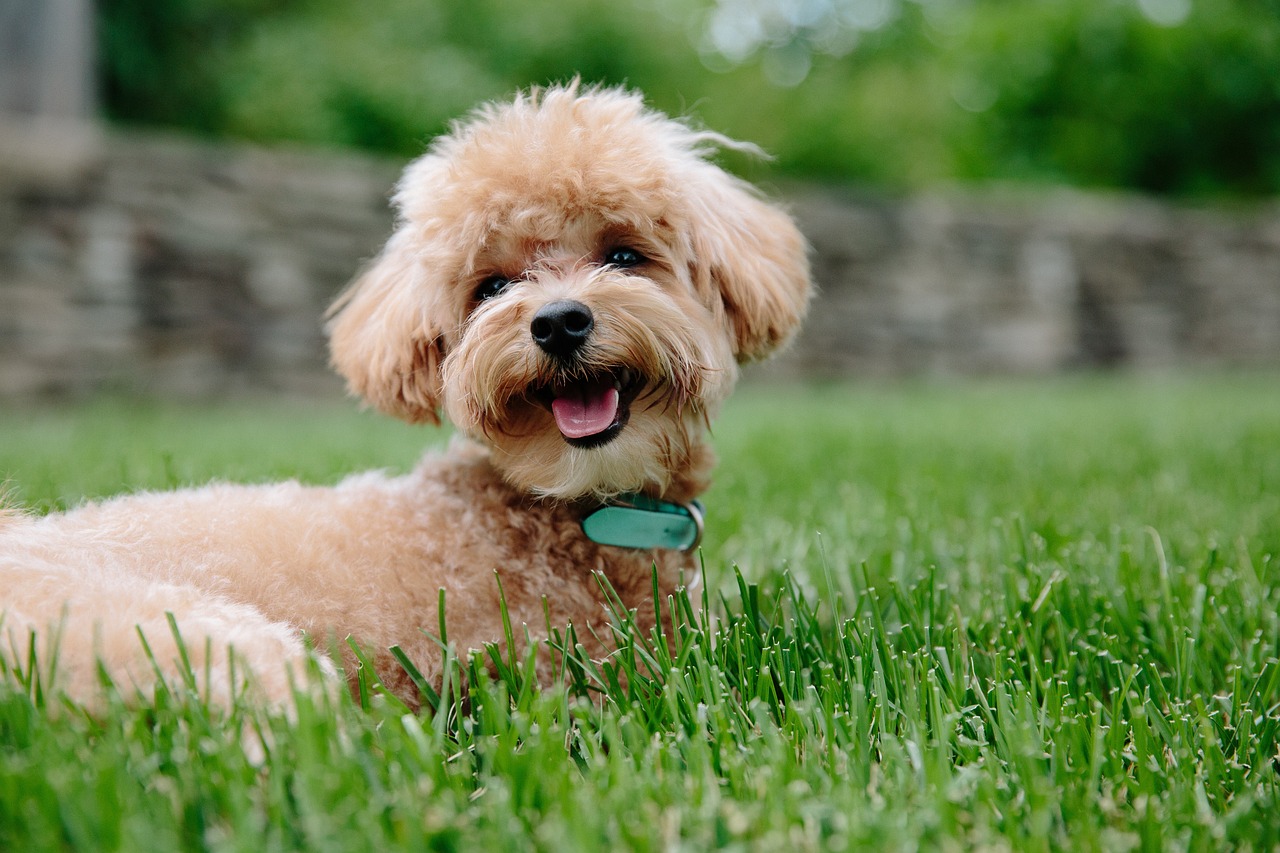
Critical Socialization Periods
Understanding the in a puppy's life is crucial for every dog owner. These specific windows of time, typically ranging from 3 to 14 weeks of age, are when puppies are most receptive to new experiences and interactions. This is the golden period where their brains are like sponges, soaking up everything around them. Imagine this phase as a blank canvas—the more colors you splash on it now, the more vibrant the final picture will be. During this time, it’s essential to expose your puppy to a variety of people, environments, and other animals to ensure they grow into a well-adjusted adult dog.
When puppies miss out on these critical experiences, it can lead to long-term behavioral issues. For instance, a puppy that hasn't been socialized with other dogs may grow up to be fearful or aggressive in their presence. It’s like sending a child to school without ever letting them meet other kids—how can they learn to play, share, or communicate? The same principle applies to our furry friends. The key takeaway here is that early socialization can significantly shape a puppy's future behavior.
During the critical socialization window, puppies are particularly sensitive to new experiences. This is the time to introduce them to different sights, sounds, and smells. Think about it: Have you ever seen a puppy react to a vacuum cleaner for the first time? Their little ears perk up, and they might even run for cover! By gently exposing them to these situations in a positive manner, you can help them learn that these experiences are not to be feared.
To give you a better idea of how to approach socialization during this critical period, here’s a quick table summarizing some important aspects:
| Age Range | Key Activities | Goals |
|---|---|---|
| 3-6 weeks | Introduce to different people and gentle handling | Familiarity with humans, reducing fear |
| 6-9 weeks | Exposure to various environments (cars, parks) | Comfort in different settings |
| 9-14 weeks | Playdates with other vaccinated puppies | Learning dog-to-dog communication |
Remember, the experiences your puppy has during this time will have a lasting impact. Think of it as laying the foundation for their future. A well-socialized puppy is more likely to grow into a confident, friendly dog who can handle a variety of situations without anxiety or aggression. So, what are you waiting for? Get out there and start socializing!
Q: What happens if I miss the critical socialization period?
A: While it’s best to socialize during the critical period, it’s never too late to start. However, older dogs may take longer to adjust and may require more patience and positive reinforcement.
Q: How can I safely socialize my puppy?
A: Always ensure that your puppy is fully vaccinated before exposing them to other dogs or public places. Start with controlled environments, like puppy classes or playdates with vaccinated dogs, to minimize risks.
Q: Can I over-socialize my puppy?
A: Yes, over-socialization can lead to overwhelming experiences. It’s important to balance exposure with positive reinforcement, allowing your puppy to process new experiences at their own pace.
Optimal Age for Socialization
When it comes to socializing your puppy, timing is everything! The typically falls between 3 and 14 weeks of age. During this crucial window, puppies are like little sponges, soaking up experiences and learning about the world around them. It's almost as if they're in a developmental sprint, racing to understand their environment, and as a responsible pet owner, you have the unique opportunity to guide them through this exciting phase.
Why is this age so critical, you ask? Well, puppies are naturally more receptive to new experiences during this period. Their brains are developing rapidly, and they are more likely to form positive associations with the sights, sounds, and smells they encounter. Think of it like planting seeds in a garden; the earlier you plant them, the better they will grow. If you wait too long to introduce your puppy to different situations, you risk them becoming fearful or anxious, which can lead to behavioral issues down the line.
To maximize the benefits of socialization, consider exposing your puppy to a variety of experiences, including:
- Different types of people (children, elderly, men, women)
- Other animals (dogs, cats, and even farm animals)
- Various environments (busy streets, parks, and quiet areas)
- Different sounds (traffic, vacuum cleaners, and thunderstorms)
Remember, the goal is to create a well-rounded experience that helps your puppy feel comfortable and confident in diverse situations. This early exposure will not only help them grow into a friendly and adaptable adult dog but also enhance their overall quality of life.
It's also important to note that while the 3 to 14 weeks window is ideal, socialization should continue throughout your dog's life. Just like us humans, dogs can benefit from new experiences at any age! So, keep the adventures coming, and don't hesitate to enroll your furry friend in puppy classes or organized playgroups even after the critical period has passed.
In conclusion, the optimal age for socialization is a golden opportunity for puppy owners. By taking advantage of this critical period, you can help your puppy develop into a well-adjusted, confident adult dog, ready to tackle whatever life throws their way. Don't miss out on this chance to set your puppy up for success!
Here are some common questions regarding puppy socialization:
- What if I miss the critical socialization window? - While the best time to socialize is between 3 and 14 weeks, you can still socialize older puppies and adult dogs. Just remember to take it slow and be patient.
- How can I safely socialize my puppy? - Start with controlled environments, like puppy classes, and gradually introduce your puppy to new experiences. Always supervise interactions with other animals and people.
- What are signs that my puppy is overwhelmed? - Look for signs of stress, such as cowering, excessive barking, or hiding. If your puppy shows these signs, it's important to remove them from the situation and try again later.
Long-term Impact of Socialization
When it comes to our furry friends, the cannot be overstated. Just like how a child's early experiences shape their personality and behavior, a puppy's interactions during their formative weeks lay the groundwork for how they will navigate the world as adults. Imagine a well-socialized dog as a confident traveler, ready to explore new places, meet new friends, and adapt to changing environments. In contrast, a poorly socialized dog might be akin to a timid child, hesitant to step outside their comfort zone.
Research has shown that puppies who undergo proper socialization are less likely to develop behavioral problems later in life. This includes issues like aggression, excessive barking, or severe anxiety. The positive experiences they have during their critical socialization period enable them to become more adaptable and resilient. It’s fascinating to think about how a few simple interactions can lead to a lifetime of positive behavior!
Moreover, socialization plays a crucial role in a dog's mental health. Just like humans, dogs thrive on connections and interactions. A well-socialized dog is often happier, healthier, and more engaged with their surroundings. They’re more likely to enjoy walks in the park, playdates with other dogs, and even trips to the vet. This vibrant social life can lead to a lower risk of developing stress-related health issues, which is why it's important for dog owners to prioritize socialization.
Let’s break down some of the key long-term benefits of early socialization:
- Improved Behavior: Socialized puppies tend to display fewer behavioral issues as adults, making them more enjoyable companions.
- Enhanced Adaptability: A well-socialized dog can adjust more easily to new environments and situations, reducing stress for both the pet and the owner.
- Stronger Bonds: Socialization fosters trust and understanding between the dog and its human family, leading to a deeper, more meaningful relationship.
- Healthier Lifestyle: Dogs that are comfortable in different social settings are more likely to engage in physical activities, contributing to their overall health.
In essence, the long-term impact of socialization is not just about behavior; it encompasses a dog's entire quality of life. By investing time and effort into socializing your puppy, you're not just raising a pet; you’re nurturing a well-rounded individual who can thrive in a variety of situations throughout their life. So, as a responsible pet owner, consider how you can create a rich tapestry of experiences for your furry friend. The rewards will be evident in their behavior, health, and happiness for years to come.
Q: What is the best age to start socializing my puppy?
A: The optimal age for socialization is between 3 to 14 weeks. This is when puppies are most receptive to new experiences.
Q: How can I socialize my puppy safely?
A: Gradually introduce your puppy to different environments, people, and other animals. Always ensure that the experiences are positive and not overwhelming.
Q: What if my puppy shows signs of fear during socialization?
A: If your puppy appears fearful, take a step back. Use gradual exposure techniques and provide plenty of positive reinforcement to build their confidence.
Q: Can socialization help prevent aggression?
A: Yes! Proper socialization can significantly reduce the risk of aggressive behavior by helping puppies learn how to interact positively with others.
Frequently Asked Questions
- What is puppy socialization?
Puppy socialization is the process of exposing young dogs to various environments, people, and experiences. This helps them develop essential life skills and reduces the likelihood of behavioral issues as they grow older.
- Why is early socialization important?
Early socialization is crucial because it leads to a well-adjusted adult dog. It fosters positive interactions with other animals and humans, enhancing their overall quality of life and helping them adapt to diverse situations.
- How does socialization reduce fear and anxiety?
Proper socialization teaches puppies how to cope with new experiences, which minimizes fear and anxiety. If these feelings are left unaddressed, they can lead to aggressive behavior in the future.
- What techniques can I use to minimize my puppy's fear?
Employing gradual exposure techniques is effective. This means slowly introducing your puppy to new situations and stimuli, allowing them to build confidence and remain calm in unfamiliar environments.
- What are the signs of fear in puppies?
Common signs of fear in puppies include cowering, excessive barking, or hiding. Recognizing these signs early allows you to address their fears effectively and help them feel more secure.
- How does socialization help build positive relationships?
Socializing puppies helps them form healthy relationships with both humans and other animals. This promotes trust and significantly reduces the risk of aggression or fear-based reactions later in life.
- What are the critical socialization periods for puppies?
Puppies undergo specific critical periods for socialization, typically between 3 and 14 weeks of age. It's essential for owners to provide diverse experiences during this time to ensure well-rounded development.
- What is the optimal age for socialization?
The optimal age for socialization is during the critical period of 3 to 14 weeks. Understanding this timeframe allows puppy owners to maximize exposure to various stimuli, leading to better adaptability and behavior.
- What is the long-term impact of early socialization?
The effects of early socialization can last a lifetime. It influences a dog's behavior, adaptability, and overall health, making it a vital part of responsible pet ownership.





